Ty Clancey
Born and raised in Iowa, Ty is an international award-winning writer/director. A graduate of SMU School of Film and New York Film Academy, Ty's early credits include the late night show Jimmy Kimmel Live and the critically-acclaimed documentary King of Kong: A Fistful of Quarters before earning worldwide accolades with the comedy team "Lost Nomads" featuring Josh Gad. Ty has directed two digital series for Fox; was E.P. and director of Gigi: Almost American on Hulu; wrote and directed 70 episodes of Marvel Mashup on Disney XD; was showrunner, director and Co-E.P. of mystery mini-series Cryptid on History Channel and the Brazilian adventure series Treasure Quest: Snake Island for Discovery Channel; directed the comedy series This Isn't Working for ABCd; the immersive People of Earth VR experience at Comic-Con for TBS; the musical drama Love & Mayhem starring Logan Marshall-Green; and has recently won two Clio Gold Winner Awards (2019, 2021) as well as three Promax Golden Statues (2019, 2020). His horror short film Thank You For Staying, shot in quarantine, had several festival wins in 2021 and his current psychological thriller short film is making the festival rounds.
Your project has entered in our festival. What is your project about?
Drawn is a psychological thriller about a widower and his mystically gifted daughter who fend off a predatory land speculator by any means necessary on a dying ranch in the Southwest. With shifting points of view and a twisting power structure, the story unravels a family mystery that spawns eerie tension, abducts our expectations of good and evil, and draws us in to a shocking reveal.
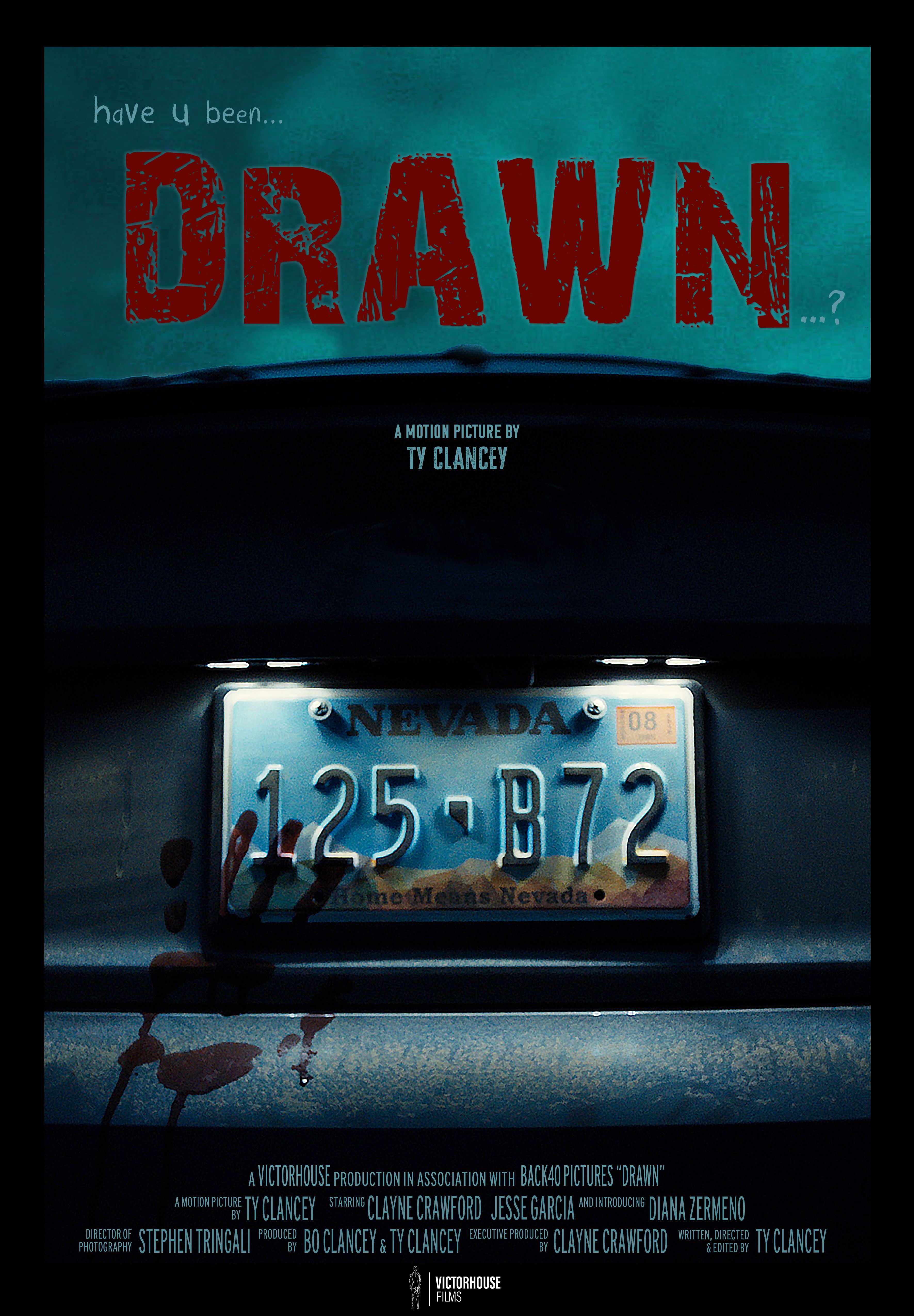
What are your ambitions with your project?
We are currently pitching the feature-length version that expands the world and explores the backstory of the characters we get a taste of in the short film. We have an incredible script penned by the writing duo Adam Hiebeler & Carl Lauricella that is a gripping tale of grief, dark powers, and the lengths a father will go to protect his child. A sinister and suspenseful journey through the rural countryside that is tinged with moments of sweetness. It has shades of the father/daughter relationships of Paper Moon and Let the Right One In, the descent into madness of The Shining, the dizzy structure of Memento, and the twisted mystery of The Sixth Sense. We're incredibly excited about where this story can go, and believe it could be an entire series of movies akin to The Conjuring and Insidious series.
Tell us something about your shooting? What pleasantly surprised you?
Halfway into our shoot a huge storm blew through. Luckily we had already shot all of our day driving on these gorgeous dirt roads that created beautiful plumes of dust in magic hour light on Big Sky Movie Ranch. But when the storm hit, all of those gorgeous dirt roads turned into treacherous canals of mud. And they all led to our hero house up on a bluff. We were forced into cover sets and luckily utilized the rain for our night driving, which lent a more sinister and ominous mood. But, since we'd already shot exterior moments that follow on dry dirt, I had to craft a new beat where our protagonist falls asleep and has nightmarish visions so that I could stretch time. I used cutting floor moments for the nightmare, shots where we were rolling as we moved the camera or adjusted focus, or an actor was warming up or we were resetting. I also enjoyed creating the sound design for this nightmare using all sorts of noises I've recorded over the years—a creepy Air BnB in Cleveland with antique instruments, or elements from installations at a Sound Museum in Prague.
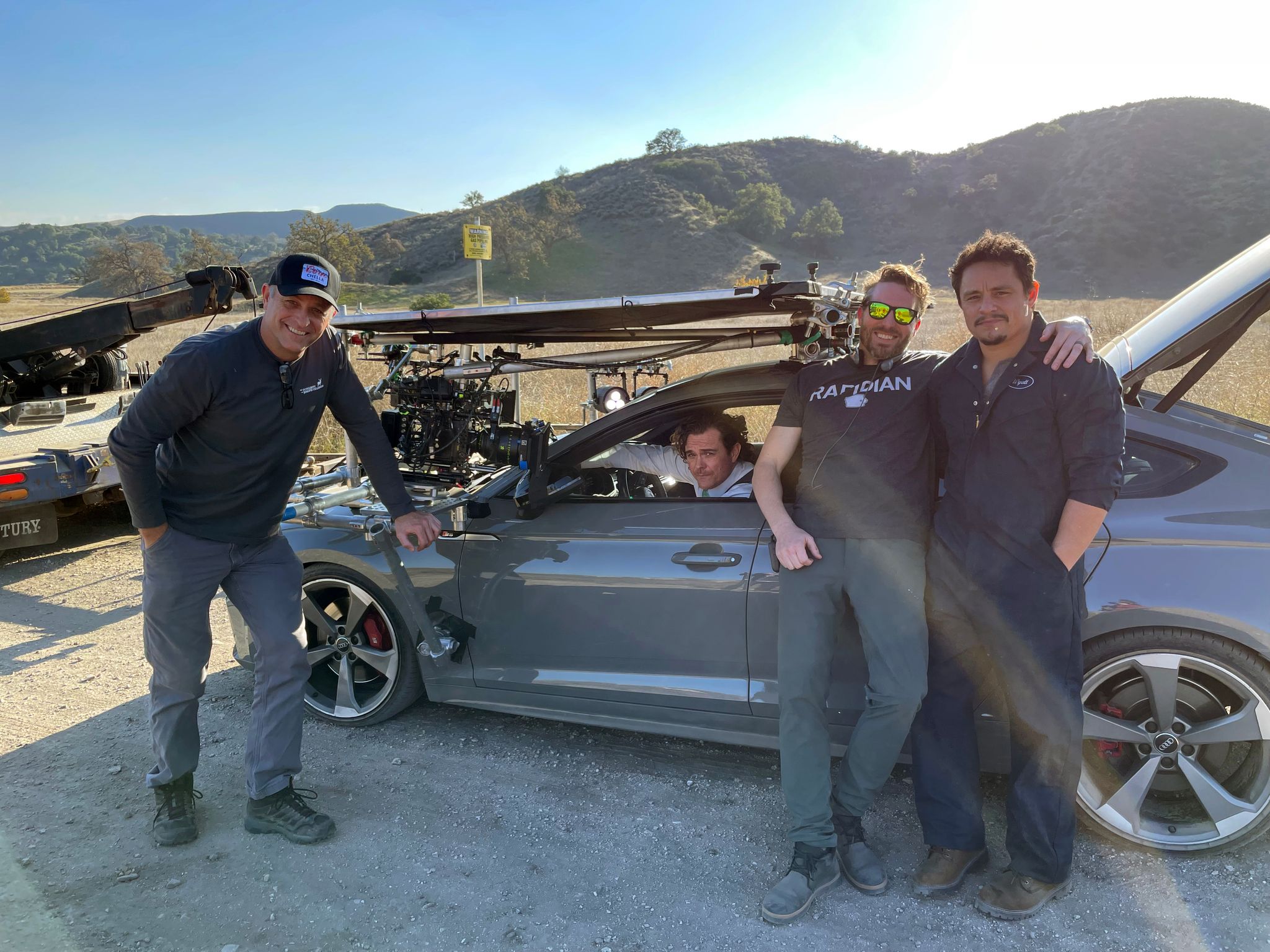
But the thing that pleasantly surprised me was the attitude of our crew in the face of this daunting weather. They were persistent and determined to adapt and conquer the challenges that we faced. Our old menacing hero tow truck didn't tow until our driver, Lyle, Macgyver'd a single wire to hold it all together and make it so reliable that it saved our crane truck from sliding in the mud and crashing into an old barn. A first-time P.A. fresh from Iowa to California handled a gator expertly ferrying supplies up and down the slick access road. Everyone bore the brunt with grace and grit. David Lean once said, "Good films can be made only by a crew of Dedicated Maniacs." I want to extent my appreciation to our cast and crew full of Dedicated Maniacs who got the job done.
For what group of spectators is your film targeted?
This psychological thriller caters to audiences who crave suspenseful and thought-provoking cinematic experiences. Specifically it targets fans of the horror genre, 18-59 yrs old. Those who appreciate narratives delving into the human psyche and exploring human connections, especially love, and what we'll do to protect it.
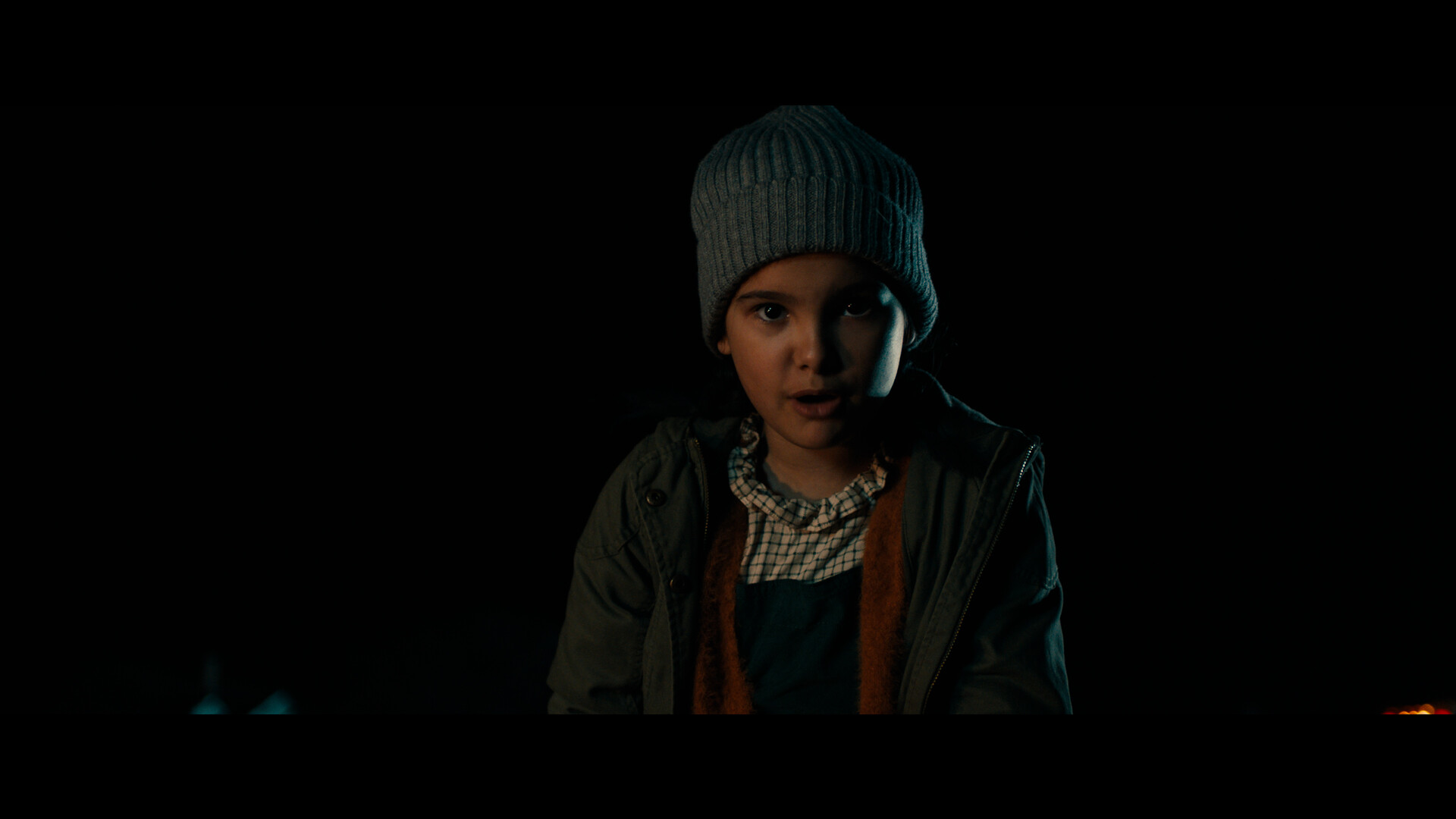
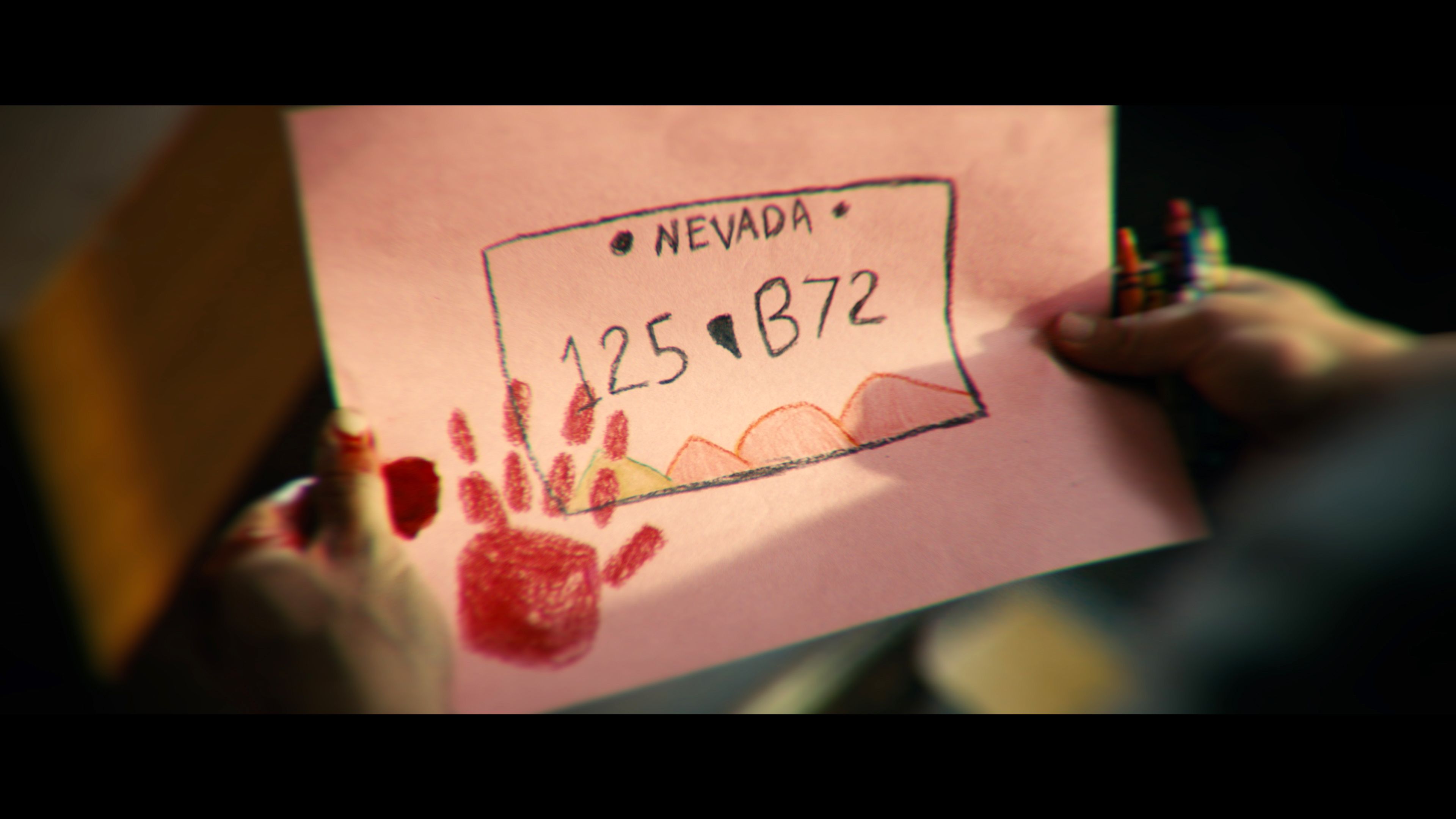
Why should distributors buy your film?
The Horror genre appeals to a diverse demographic, all across the globe. I also believe that our hook and twist are quite unique, involving situations of peril that anyone could find themselves in. As I stated above, this world we've created can expand into a multi-movie franchise. The spark is there, we just need the oxygen.
How would you specify your work?
I come from a comedy background, so in the past my work has been marked by a fun, irreverent and surreal quality. Now that I've moved into darker psychological territory I gravitate toward intriguing mysteries and high-concept thrillers and sci-fi. My work is visceral and grabs you by the senses, keeping you on edge. Many of my stories can also work as graphic novels, or immersive video games.
What characterizes your film?
The tone of this film is bleak, disturbing and frightening; but also tinged with moments of sweetness. We see the world through the eyes of a child, who may not be as innocent as she appears. The story has a terror that's subtle and slow-building, leaving the audience's imagination to do the heavy lifting, until we smack 'em over the head with a twist.
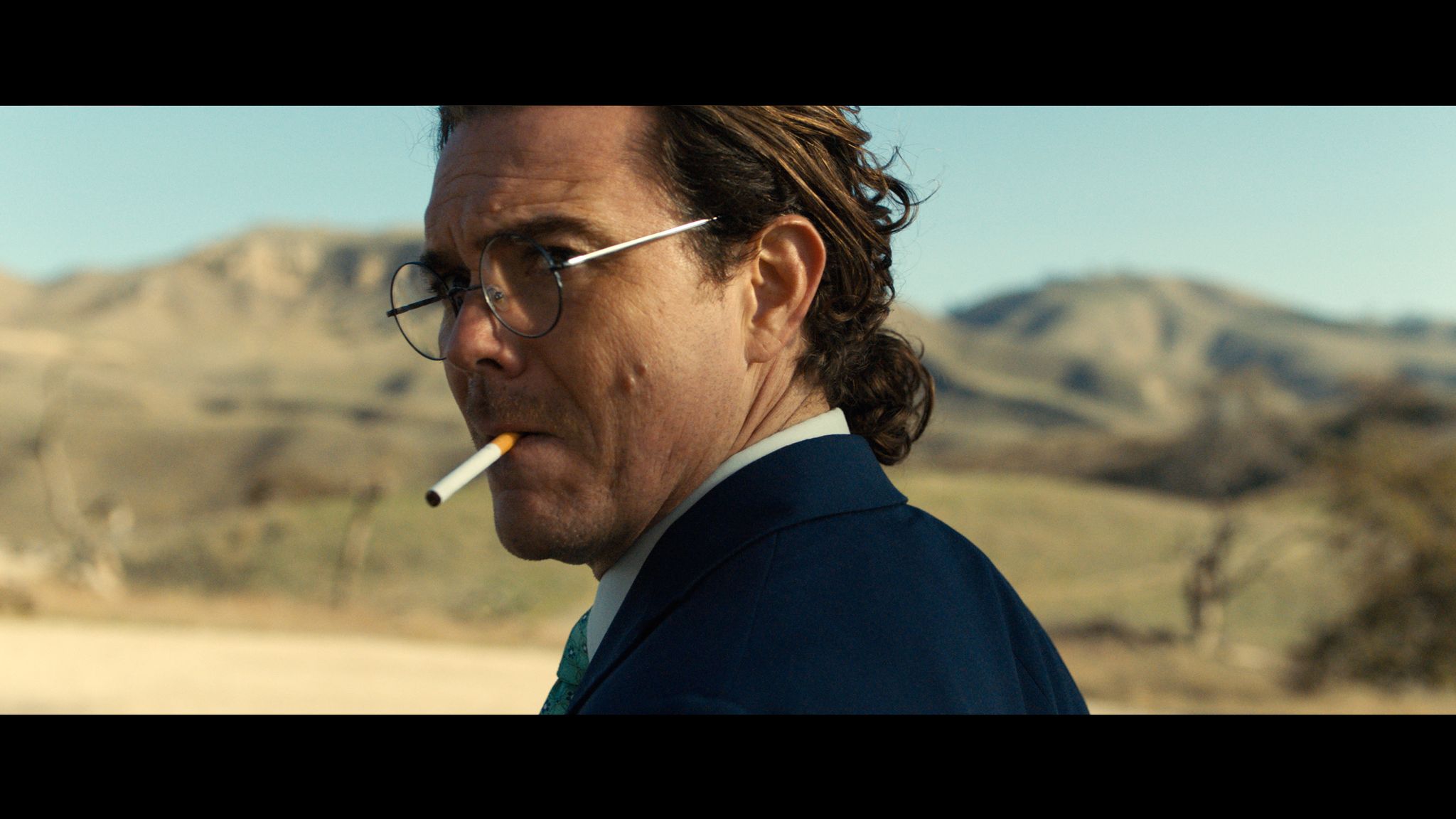
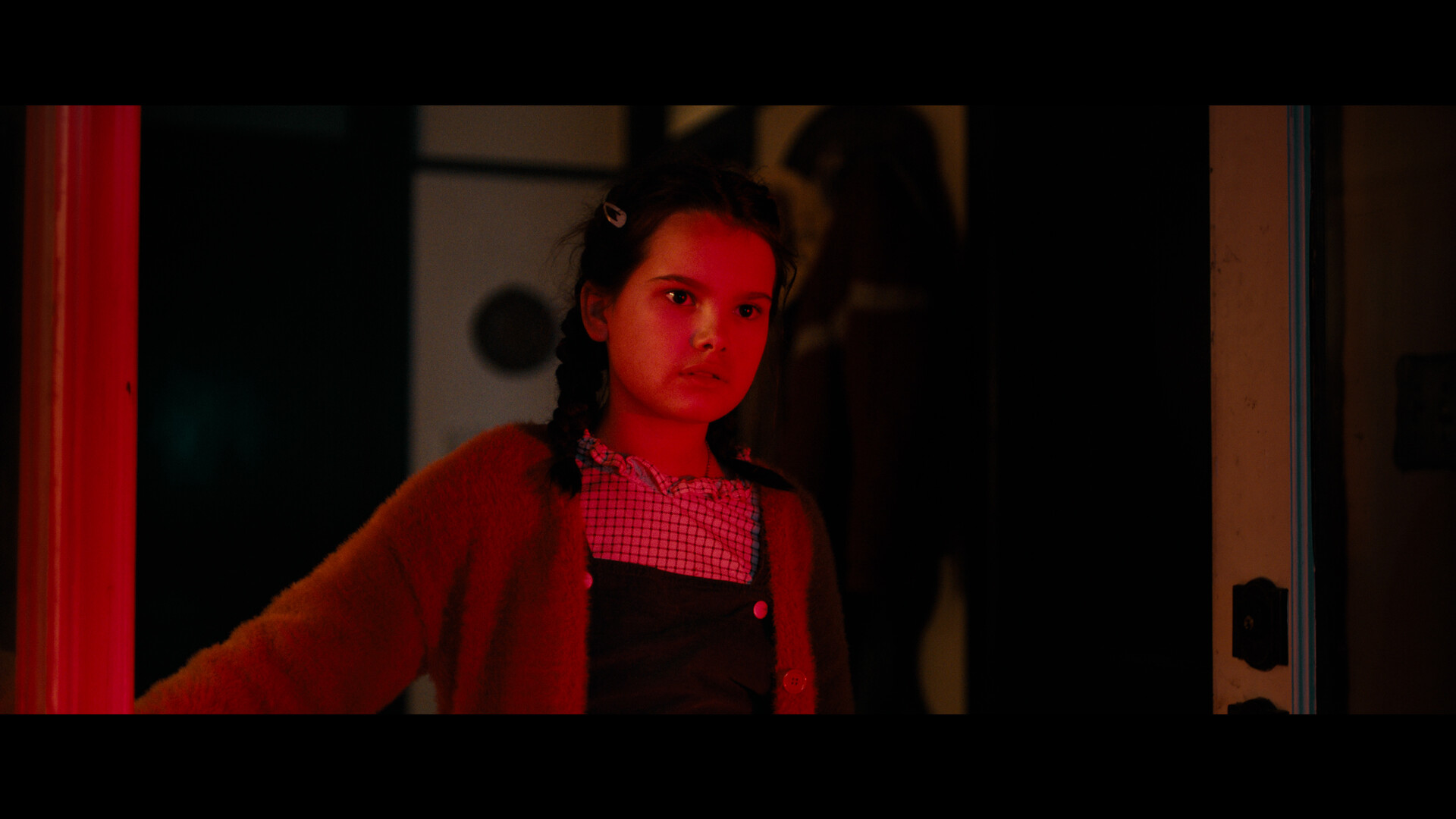
Why did you decided to become a filmmaker?
I grew up as a child of the '80s, glued to HBO and often re-enacting movies for fun. My dad would video family events and vacations with a camera that needed a battery slung around your shoulder. I'd borrow it and make terrible parodies with friends. All of the editing had to be done in-camera, so it was really just... awful stuff. But, it was fun and it gave my older brothers something to make fun of us for. I focused on learning the mechanics of production in school, and made my early career in editing which gave me an important barometer for what I needed to shoot efficiently.
Who is your role model?
Too many to count. But here is a quick breakdown of who I admire and why: Spielberg and Kubrick refuse to be tied down to genre; Nolan uses technology and traditional effects in beautiful ways; PT Anderson creates immersive worlds; My father, always shooting with that cumbersome videocamera, showed that I could shoot my own things. Possibly my biggest influence is my mother, she was the first female mayor of my hometown and is an incredible leader. As a filmmaker, and especially a director, first and foremost you must lead people into unknown territory, confident in your ability to adapt and overcome obstacles that inevitably cross your path.
Which movies are your favorites? Why?
There Will Be Blood — All around phenomenal. The first 15 minutes is just stunning vistas, Daniel Day Lewis scratching in the dirt with that Johnny Greenwood score. All the way through to the best final line of any movie, ever.
The Big Lebowski — Full disclosure, I did not understand this movie the first time I saw it. Though I was on the Dude's level, which could've been why I was confused. This is a movie that just gets funnier every time you watch it.
E.T. — That goofy little alien brings the waterworks every time he's found shriveled up in that creek.
Dr. Strangelove - Kubrick took a serious book and made it a dark comedy that shook you to your core, then and now. Also, the fact that Kubrick tricked George C Scott into playing Turgidson far more bonkers than he wanted to by having him do over-the-top "practice" takes as prep for the "real" takes, and then used the practice takes.
Inception - I love surrealism and by default the idea of dreams. This was an incredible exploration of the dream world.
Interstellar - The cross-cutting is phenomenal. Hard sci-fi at its finest coupled with a father-daughter story second-to-none.
Where do you look for inspiration for your films?
Ideas can germinate from reading, news, art, definitely other movies. Sometimes a song can inspire an idea. Most of my developed ideas come with a Spotify playlist.
Which topics interest you the most?
Science and Mystery. The fact that we barely understand how our own minds work. And every fifty years our notion of reality must be confronted and upended. I love it. There is so little we know, which is amazing fuel for creativity. To postulate potential realities. My stories usually begin high-concept, then I try to drill down to the humanity within.
What do you consider your greatest achievement in your career?
Lots of adventures that I'm proud of, even if the final product wasn't what I was hoping for. I've braved midnight in the bayou swamp, an island full of snakes, mudslides in Simi Valley, and made incredible connections with people along the way. But for sheer fun and execution from start to finish I'd go with Gigi: Almost American. I got to make two seasons with my friends and my brothers.
What do you consider most important about filming?
The visceral, emotional elements of filmmaking are what make it the best artistic medium out there, in my opinion. Ever since I was child I could get lost in the movies. Whether it's superb dialogue, engaging acting, editing that can connect two disparate ideas into one, music that envelops you in the mood, design that puts you in a place and camera angles that put you in the story. It's an all-encompassing art form that affects the majority of our senses.
Which film technique of shooting do you consider the best?
Whatever best suits the story. I was lucky enough to begin my career with a comedy troupe called The Lost Nomads, and we shot all kinds of genres, which allowed me to experiment and execute all different styles - from measured and fluid on sticks and dollies to chaotic and realistic handheld, mockumentary, found footage, puppetry, animation, film noir, live sports, surrealism, and so on. I'm partial to editing, because it's not until the edit that the movie is actually made. I think too often the importance of editing is lost. There are famous writers, directors, and actors. But how many editors can the average person name?
How would you rate/What is your opinion about current filmmaking?
While there is some incredible content out there, I don't feel the industry is supporting unknown voices and original ideas. Streaming has jackhammered an important avenue in independent filmmaking—the idea of making something inexpensive on the front end so you can pay out on the backend using residuals and profit-sharing. Or even the idea of using metrics and box office numbers to help raise money for a project. I find my only avenue is making something myself to prove to everyone that I am undeniable as a filmmaker. And that requires the ability to point to past successes within my proposed genre to help sell. When we cannot access the data, it stifles an important metric to convince investors they can get a return.
What can disappoint you in a movie?
When it is too long. Give me a solid 90-100 minute movie any day. Perfect amount of time for an escape into a film's world. Back in the day theater owners didn't want long movies, they couldn't sell as many viewings in a day. Now, Streamers want minutes to feed their voracious viewers. So it feels like there is less discipline in the edit room. Things get left in that would otherwise be cut out. The movie isn't as tight as it could be. And I'm bored.
Who supports you in your film career?
First and foremost my family has always been there, supporting me. My parents introduced me to storytelling. I work with my brothers, and they have always encouraged me to turn my ideas into reality. Friends have helped me get jobs and been there as a sounding board. My most steadfast supporter is my wife, Britta. I literally could not still be pursuing this dream if it wasn't for her. Spending two decades pouring creativity into spec projects can be draining, so it's vital to have someone who has your back. Stephen King once said, "Writing is a lonely job. Having someone who believes in you makes a lot of difference." Can't thank my wife enough for helping keep the dream alive.
What are the reactions to your film? (opinion of spectators, film critics, friends and family)
So far, the thing we hear most is, "Wow, I didn't know what I was expecting, but it wasn't that."
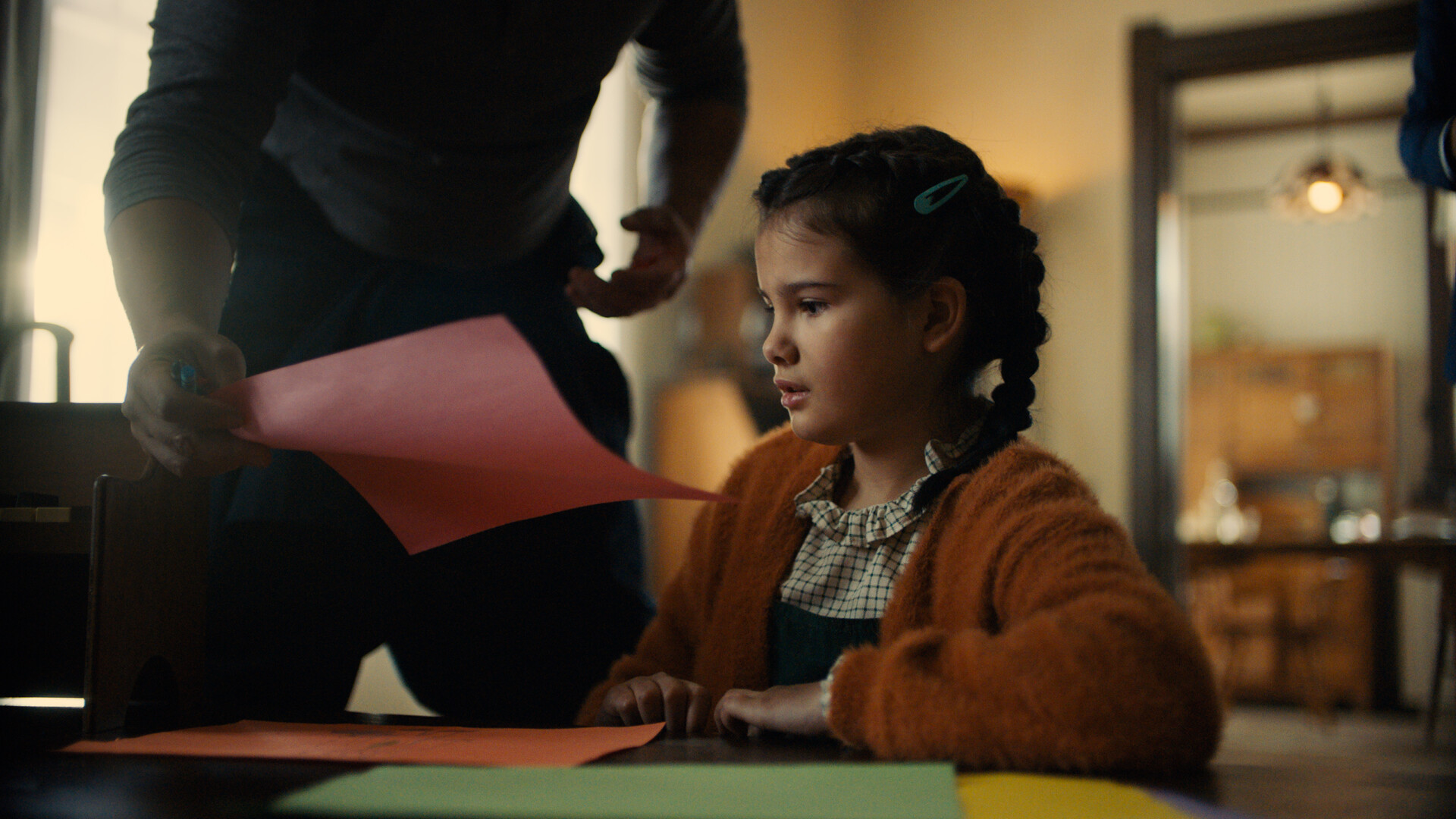
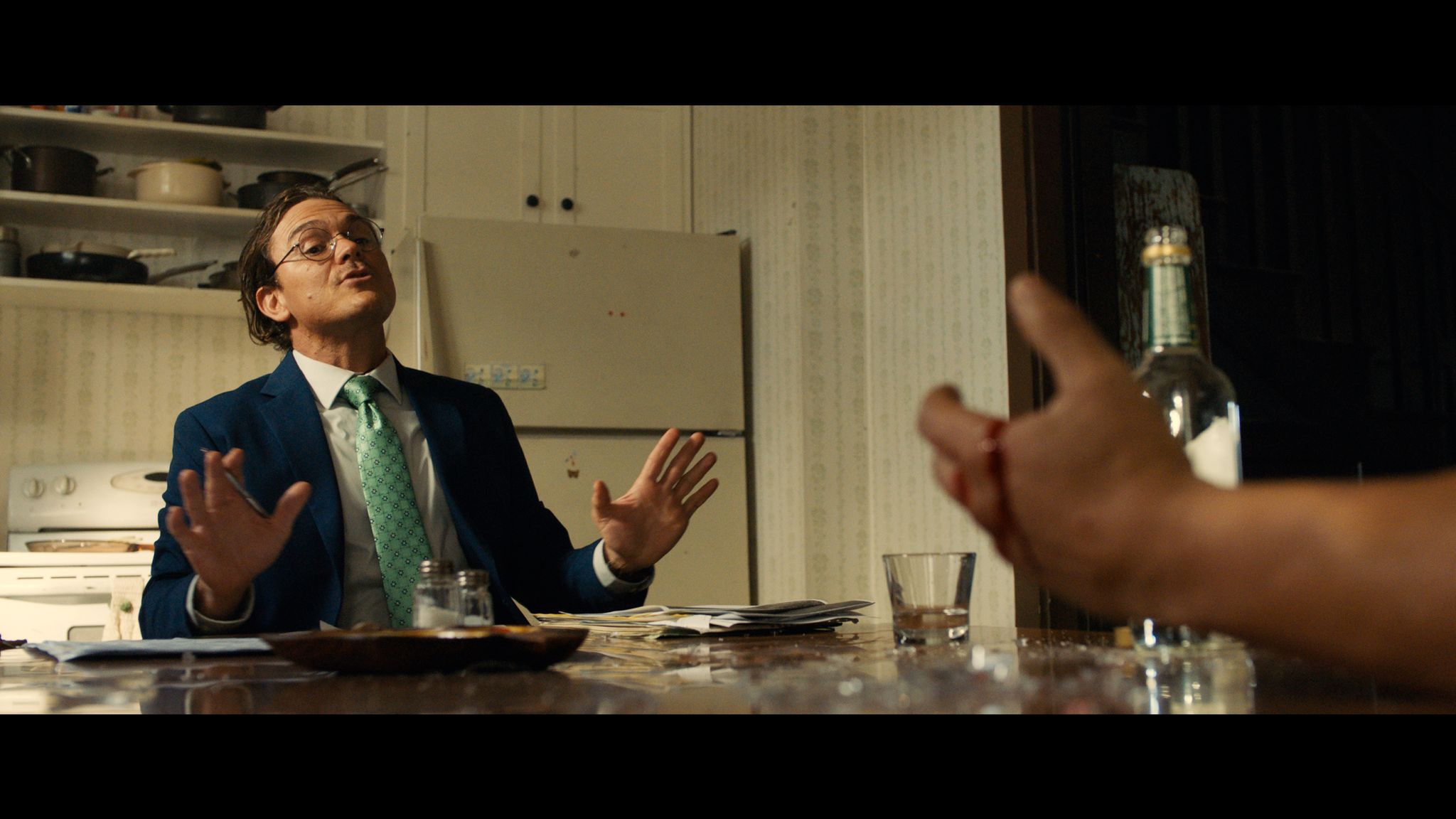
Have you already visited any of the prestigious film festivals?
Not yet. But we're very excited about some that are upcoming.
What are your future plans in filmmaking career?
Continue my quest to break into feature filmmaking and long-form storytelling. While simultaneously learning new technologies like Unreal Engine to expand my abilities as a filmmaker.
Your project has entered in our festival. What is your project about?
Drawn is a psychological thriller about a widower and his mystically gifted daughter who fend off a predatory land speculator by any means necessary on a dying ranch in the Southwest. With shifting points of view and a twisting power structure, the story unravels a family mystery that spawns eerie tension, abducts our expectations of good and evil, and draws us in to a shocking reveal.

What are your ambitions with your project?
We are currently pitching the feature-length version that expands the world and explores the backstory of the characters we get a taste of in the short film. We have an incredible script penned by the writing duo Adam Hiebeler & Carl Lauricella that is a gripping tale of grief, dark powers, and the lengths a father will go to protect his child. A sinister and suspenseful journey through the rural countryside that is tinged with moments of sweetness. It has shades of the father/daughter relationships of Paper Moon and Let the Right One In, the descent into madness of The Shining, the dizzy structure of Memento, and the twisted mystery of The Sixth Sense. We're incredibly excited about where this story can go, and believe it could be an entire series of movies akin to The Conjuring and Insidious series.
Tell us something about your shooting? What pleasantly surprised you?
Halfway into our shoot a huge storm blew through. Luckily we had already shot all of our day driving on these gorgeous dirt roads that created beautiful plumes of dust in magic hour light on Big Sky Movie Ranch. But when the storm hit, all of those gorgeous dirt roads turned into treacherous canals of mud. And they all led to our hero house up on a bluff. We were forced into cover sets and luckily utilized the rain for our night driving, which lent a more sinister and ominous mood. But, since we'd already shot exterior moments that follow on dry dirt, I had to craft a new beat where our protagonist falls asleep and has nightmarish visions so that I could stretch time. I used cutting floor moments for the nightmare, shots where we were rolling as we moved the camera or adjusted focus, or an actor was warming up or we were resetting. I also enjoyed creating the sound design for this nightmare using all sorts of noises I've recorded over the years—a creepy Air BnB in Cleveland with antique instruments, or elements from installations at a Sound Museum in Prague.

But the thing that pleasantly surprised me was the attitude of our crew in the face of this daunting weather. They were persistent and determined to adapt and conquer the challenges that we faced. Our old menacing hero tow truck didn't tow until our driver, Lyle, Macgyver'd a single wire to hold it all together and make it so reliable that it saved our crane truck from sliding in the mud and crashing into an old barn. A first-time P.A. fresh from Iowa to California handled a gator expertly ferrying supplies up and down the slick access road. Everyone bore the brunt with grace and grit. David Lean once said, "Good films can be made only by a crew of Dedicated Maniacs." I want to extent my appreciation to our cast and crew full of Dedicated Maniacs who got the job done.
For what group of spectators is your film targeted?
This psychological thriller caters to audiences who crave suspenseful and thought-provoking cinematic experiences. Specifically it targets fans of the horror genre, 18-59 yrs old. Those who appreciate narratives delving into the human psyche and exploring human connections, especially love, and what we'll do to protect it.


Why should distributors buy your film?
The Horror genre appeals to a diverse demographic, all across the globe. I also believe that our hook and twist are quite unique, involving situations of peril that anyone could find themselves in. As I stated above, this world we've created can expand into a multi-movie franchise. The spark is there, we just need the oxygen.
How would you specify your work?
I come from a comedy background, so in the past my work has been marked by a fun, irreverent and surreal quality. Now that I've moved into darker psychological territory I gravitate toward intriguing mysteries and high-concept thrillers and sci-fi. My work is visceral and grabs you by the senses, keeping you on edge. Many of my stories can also work as graphic novels, or immersive video games.
What characterizes your film?
The tone of this film is bleak, disturbing and frightening; but also tinged with moments of sweetness. We see the world through the eyes of a child, who may not be as innocent as she appears. The story has a terror that's subtle and slow-building, leaving the audience's imagination to do the heavy lifting, until we smack 'em over the head with a twist.


Why did you decided to become a filmmaker?
I grew up as a child of the '80s, glued to HBO and often re-enacting movies for fun. My dad would video family events and vacations with a camera that needed a battery slung around your shoulder. I'd borrow it and make terrible parodies with friends. All of the editing had to be done in-camera, so it was really just... awful stuff. But, it was fun and it gave my older brothers something to make fun of us for. I focused on learning the mechanics of production in school, and made my early career in editing which gave me an important barometer for what I needed to shoot efficiently.
Who is your role model?
Too many to count. But here is a quick breakdown of who I admire and why: Spielberg and Kubrick refuse to be tied down to genre; Nolan uses technology and traditional effects in beautiful ways; PT Anderson creates immersive worlds; My father, always shooting with that cumbersome videocamera, showed that I could shoot my own things. Possibly my biggest influence is my mother, she was the first female mayor of my hometown and is an incredible leader. As a filmmaker, and especially a director, first and foremost you must lead people into unknown territory, confident in your ability to adapt and overcome obstacles that inevitably cross your path.
Which movies are your favorites? Why?
There Will Be Blood — All around phenomenal. The first 15 minutes is just stunning vistas, Daniel Day Lewis scratching in the dirt with that Johnny Greenwood score. All the way through to the best final line of any movie, ever.
The Big Lebowski — Full disclosure, I did not understand this movie the first time I saw it. Though I was on the Dude's level, which could've been why I was confused. This is a movie that just gets funnier every time you watch it.
E.T. — That goofy little alien brings the waterworks every time he's found shriveled up in that creek.
Dr. Strangelove - Kubrick took a serious book and made it a dark comedy that shook you to your core, then and now. Also, the fact that Kubrick tricked George C Scott into playing Turgidson far more bonkers than he wanted to by having him do over-the-top "practice" takes as prep for the "real" takes, and then used the practice takes.
Inception - I love surrealism and by default the idea of dreams. This was an incredible exploration of the dream world.
Interstellar - The cross-cutting is phenomenal. Hard sci-fi at its finest coupled with a father-daughter story second-to-none.
Where do you look for inspiration for your films?
Ideas can germinate from reading, news, art, definitely other movies. Sometimes a song can inspire an idea. Most of my developed ideas come with a Spotify playlist.
Which topics interest you the most?
Science and Mystery. The fact that we barely understand how our own minds work. And every fifty years our notion of reality must be confronted and upended. I love it. There is so little we know, which is amazing fuel for creativity. To postulate potential realities. My stories usually begin high-concept, then I try to drill down to the humanity within.
What do you consider your greatest achievement in your career?
Lots of adventures that I'm proud of, even if the final product wasn't what I was hoping for. I've braved midnight in the bayou swamp, an island full of snakes, mudslides in Simi Valley, and made incredible connections with people along the way. But for sheer fun and execution from start to finish I'd go with Gigi: Almost American. I got to make two seasons with my friends and my brothers.
What do you consider most important about filming?
The visceral, emotional elements of filmmaking are what make it the best artistic medium out there, in my opinion. Ever since I was child I could get lost in the movies. Whether it's superb dialogue, engaging acting, editing that can connect two disparate ideas into one, music that envelops you in the mood, design that puts you in a place and camera angles that put you in the story. It's an all-encompassing art form that affects the majority of our senses.
Which film technique of shooting do you consider the best?
Whatever best suits the story. I was lucky enough to begin my career with a comedy troupe called The Lost Nomads, and we shot all kinds of genres, which allowed me to experiment and execute all different styles - from measured and fluid on sticks and dollies to chaotic and realistic handheld, mockumentary, found footage, puppetry, animation, film noir, live sports, surrealism, and so on. I'm partial to editing, because it's not until the edit that the movie is actually made. I think too often the importance of editing is lost. There are famous writers, directors, and actors. But how many editors can the average person name?
How would you rate/What is your opinion about current filmmaking?
While there is some incredible content out there, I don't feel the industry is supporting unknown voices and original ideas. Streaming has jackhammered an important avenue in independent filmmaking—the idea of making something inexpensive on the front end so you can pay out on the backend using residuals and profit-sharing. Or even the idea of using metrics and box office numbers to help raise money for a project. I find my only avenue is making something myself to prove to everyone that I am undeniable as a filmmaker. And that requires the ability to point to past successes within my proposed genre to help sell. When we cannot access the data, it stifles an important metric to convince investors they can get a return.
What can disappoint you in a movie?
When it is too long. Give me a solid 90-100 minute movie any day. Perfect amount of time for an escape into a film's world. Back in the day theater owners didn't want long movies, they couldn't sell as many viewings in a day. Now, Streamers want minutes to feed their voracious viewers. So it feels like there is less discipline in the edit room. Things get left in that would otherwise be cut out. The movie isn't as tight as it could be. And I'm bored.
Who supports you in your film career?
First and foremost my family has always been there, supporting me. My parents introduced me to storytelling. I work with my brothers, and they have always encouraged me to turn my ideas into reality. Friends have helped me get jobs and been there as a sounding board. My most steadfast supporter is my wife, Britta. I literally could not still be pursuing this dream if it wasn't for her. Spending two decades pouring creativity into spec projects can be draining, so it's vital to have someone who has your back. Stephen King once said, "Writing is a lonely job. Having someone who believes in you makes a lot of difference." Can't thank my wife enough for helping keep the dream alive.
What are the reactions to your film? (opinion of spectators, film critics, friends and family)
So far, the thing we hear most is, "Wow, I didn't know what I was expecting, but it wasn't that."


Have you already visited any of the prestigious film festivals?
Not yet. But we're very excited about some that are upcoming.
What are your future plans in filmmaking career?
Continue my quest to break into feature filmmaking and long-form storytelling. While simultaneously learning new technologies like Unreal Engine to expand my abilities as a filmmaker.
